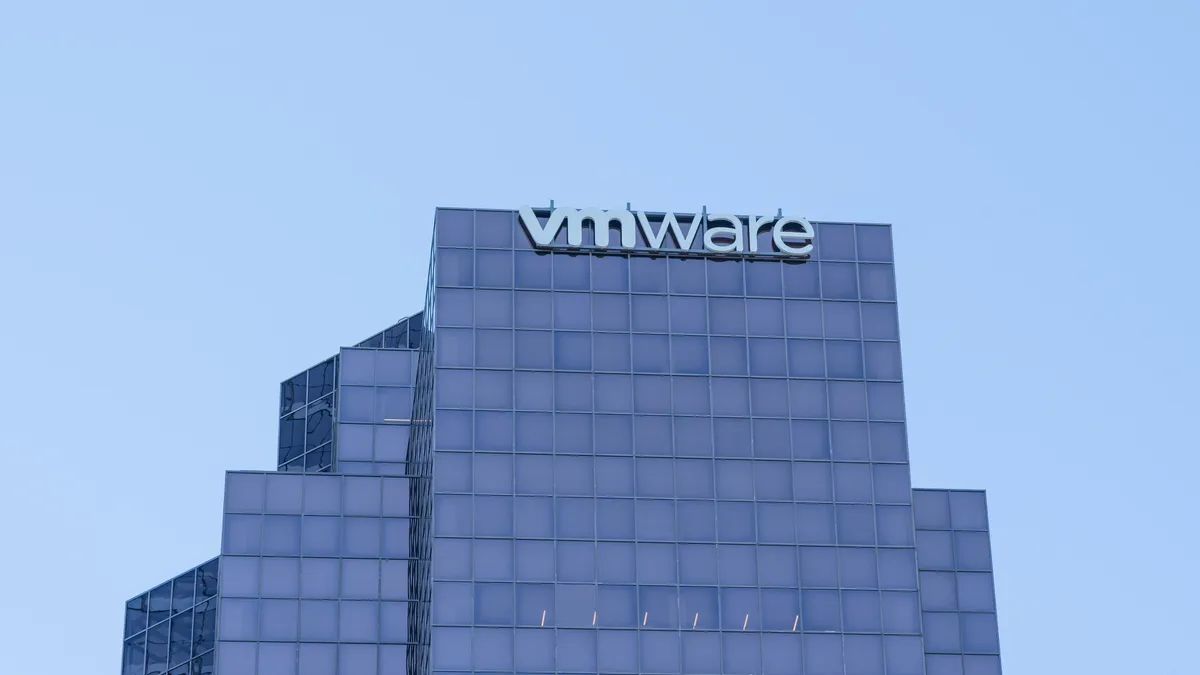Dive Brief:
- Broadcom rebuffed AT&T’s request for injunctive relief stemming from changes in VMware's licensing practices in a memorandum filed with the Supreme Court of the State of New York Friday.
- The chipmaker said AT&T opted out of VMware support services despite fair warning in advance of “a long-planned and well-known business model transition.” Broadcom claimed AT&T “could have spent the last several months or even years ‘migrating away’ from VMware software” and had indicated its intention to do so.
- “AT&T frequently informed VMware during the course of negotiations that it was planning to move off VMware software,” said Randall Gressett, Broadcom VP of VMware Americas Strategic Sales, in an affidavit filed Friday. Gressett cited an Aug. 19 email AT&T sent to Broadcom CEO Hock Tan declining a new VMware subscription deal in favor of migrating away from the software.
Dive Insight:
As the one-year anniversary of Broadcom’s $61 billion November purchase of VMware nears, customers face a difficult choice: agree to a service-based licensing model for the vendor's software, migrate to a different virtualized compute environment or find third-party support for existing deployments.
AT&T opted to challenge the changes in court earlier this month.
The telecommunications giant said Broadcom was refusing to uphold perpetual license provisions supporting previously purchased software unless AT&T agreed to spend millions of dollars on bundled subscriptions it does not want or need.
Broadcom countered Friday that AT&T is trying to “rewind the clock” by forcing VMware to “sell support services for perpetual software licenses that VMware has discontinued from its product line and to which AT&T has no contractual right to purchase.”
In the meantime, Broadcom has agreed to extend support for AT&T’s VMware deployments through Oct. 21, according to court documents. Support for more than 75,000 virtual machines running across approximately 8,600 servers would otherwise have ended on Sept. 8, AT&T said.
While major changes in the VMware product line came fast on the heels of the November acquisition, Broadcom said the transition was years in the making.
“Since 2018, VMware had initiated strategic plans to transition its licensing model and product portfolio to a subscription model,” Broadcom said, noting executives mentioned the shift during a Q2 2022 earnings call.
“Long before the acquisition by Broadcom, it was well known in the industry that VMware would be transitioning from a perpetual to a subscription-based model,” Gressett said.
VMware warned customers that a la carte vSphere solutions were being consolidated into subscription bundles and would no longer be offered as standalone products, in a Jan. 15 blog post amended one week later.
The changes whittled 168 individual products and close to 9,000 SKUs down to two large bundles — a VMware Cloud Foundation full-stack offering and the vSphere virtualized environment.
Broadcom contends bundled SaaS offerings are standard industry practice and a necessary response to enterprise cloud adoption.
“VMware has been facing ever-increasing competition from, in particular, the public cloud, eroding its position in on-premises deployments,” said Gressett. “The direct competitive constraint from the public cloud caused VMware — long before the Broadcom acquisition — to create a full-stack VMware Cloud Foundation product and promote its adoption and deployment across its customer base.”
While Broadcom touted the savings potential of the strategy, some customers reported costs spiking by as much as 500%, according to Forrester. A recent survey of 1,000 current or recent VMware users by cloud provider and VMware competitor Civo found more than half were considering leaving the platform.
As Broadcom consolidates the private cloud platform, it is listening to customer feedback and guiding them through “a phased approach so they can show the value at every part of the pace,” Prashanth Shenoy, VCF Division VP of product marketing, said during a June briefing.
AT&T is scheduled to file any further documents in support of the motion for preliminary injunctive relief by September 27. The company declined to comment further via email Monday.













